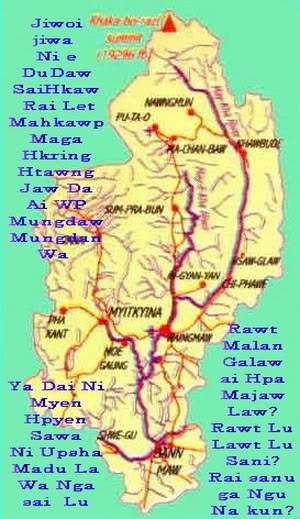By ROSHAN JASON
One must be wondering if the Association of Southeast Asian Nations (ASEAN) is nearing the end of its tether with its perpetually troublesome member, Burma, or has the bloc so convincingly led the world to believe that it cares enough when it appears, in actual deed, that it does not?
Recent reactions and statements from some member states about Burma’s newly announced election laws indicate that certain countries in the regional grouping may be growing more willing to openly question Burma’s regime and venture into uncharted territory when it comes to dealing with the unruly country.
It remains to be seen however, if this concern can and will be translated into solid action. The way in which ASEAN decides and acts on regional issues – complete consensus – proves to be a major stumbling block, but there must be a way to circumvent it. Given its somewhat flexible working mechanisms, ASEAN leaders also have the luxury to create ways to compel the regime to heed its ‘advice’.
The 16th ASEAN Summit currently taking place in Vietnam might just be the bloc’s very last opportunity to address this particular problem and for a revolutionary approach to be taken, before the regime entrenches its power via the skewed 2010 elections.
ASEAN, also influenced by a number other factors such as a desire to ‘protect’ the group against external imperialism and growing economic ties, has doggedly pursued its ‘constructive engagement’ with Burma, even in the face of rapidly deteriorating conditions in the country.
Its argument has been that engagement facilitates continued dialogue and allows ASEAN to exert its influence over the increasingly petulant behaviour of Burma’s military regime and that this engagement is preferable to the isolation of Western-style economic sanctions.
Perhaps it would be preferable, if it had actually succeeded in doing anything more than allowing the military generals in Naypyidaw to ride roughshod over the people of Burma while filling their own pockets with generous profits from the exploitation of the country’s vast natural resources.
Can ASEAN members then turn its occasional admonition of Burma into actual meaningful action such as membership suspension?
With the announcement of the election laws governing the upcoming general election in Burma, the military regime showed clearly that despite its claims to the contrary, it has no intention of holding an election that is free, fair and inclusive of opposition parties.
The party registration law, which prohibits the nation’s political prisoners, including Aung San Suu Kyi, from joining parties and contesting seats in the assemblies, left no choice to her party, the National League for Democracy, but to refuse to register as a contesting political party and therefore be disbanded. Without the participation of the largest opposition party, the generals’ election will not have even a modicum of legitimacy.
With this flagrant disregard by the generals of a basic element of electoral fairness, it appears that some ASEAN leaders are finally recognizing the military regime’s true nature.
Political leaders, including foreign ministers from Thailand, Indonesia, Malaysia, Philippines and Singapore, have all voiced their concern, disappointment and disapproval of the election laws. They have urged the military regime to revise the laws and initiate a dialogue with the opposition to ensure that the elections are inclusive and not just an elaborate scheme designed to guarantee the military’s hold on power indefinitely.
What this publicly expressed concern translates into – especially during an appropriate forum as the ASEAN Summit – remains to be seen. However, based on previous discussions on Burma at ASEAN meetings, mere ‘advice’ will be given and ‘hope’ will be placed in the generals to heed the urgings of the bloc.
Pressure from ASEAN members, some of whom also happen to be among Burma’s top trading partners, could be instrumental in opening up a space for dialogue and reconciliation, but achieving this shift will necessitate departing from the long-revered ideal of regional consensus and rather pursuing actions, including passing resolutions, that may not be popular with all members of the regional bloc.
Members who appreciate democratic governance and the protection of human rights as enshrined in the ASEAN Charter must now take the lead. They must be willing to stand up for their values and not allow themselves to be led by the murderous rogues in their midst. They must forego consensus to facilitate genuine reform in Burma and end the military’s 40-year reign of terror.
Roshan Jason is executive director of the ASEAN Inter-Parliamentary Myanmar Caucus (AIPMC)
Apr 24, 2010
Subscribe to:
Post Comments (Atom)
WUNPAWNG MUNGDAN SHANGLAWT HPUNG A NINGGAWN MUNGMASA
WUNPAWNG MUNGDAN SHANGLAWT HPUNG A NINGGAWN MUNGMASA
CHYE JU KABA SAI
Sa Du N'Gun Jaw La ai Majaw N'chying wa Chyeju Dum Ga ai,Yawng a Ntsa Wa Karai Kasang Kaw na N'Htum N'Wai ai Shaman Chye ju Tut e Hkam La Lu Nga mu Ga law




No comments:
Post a Comment